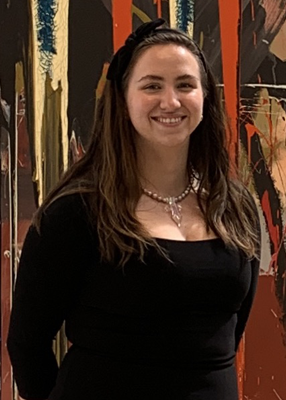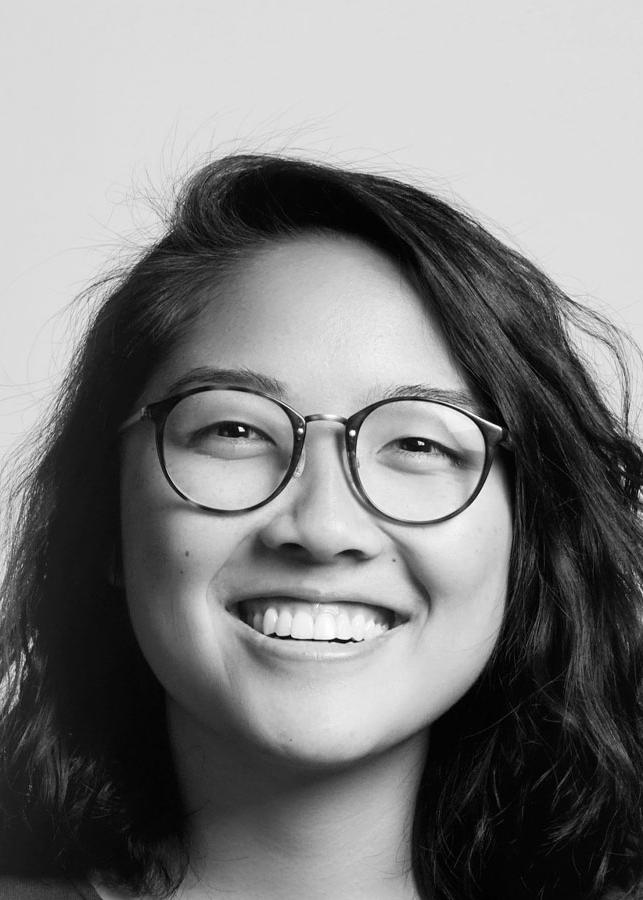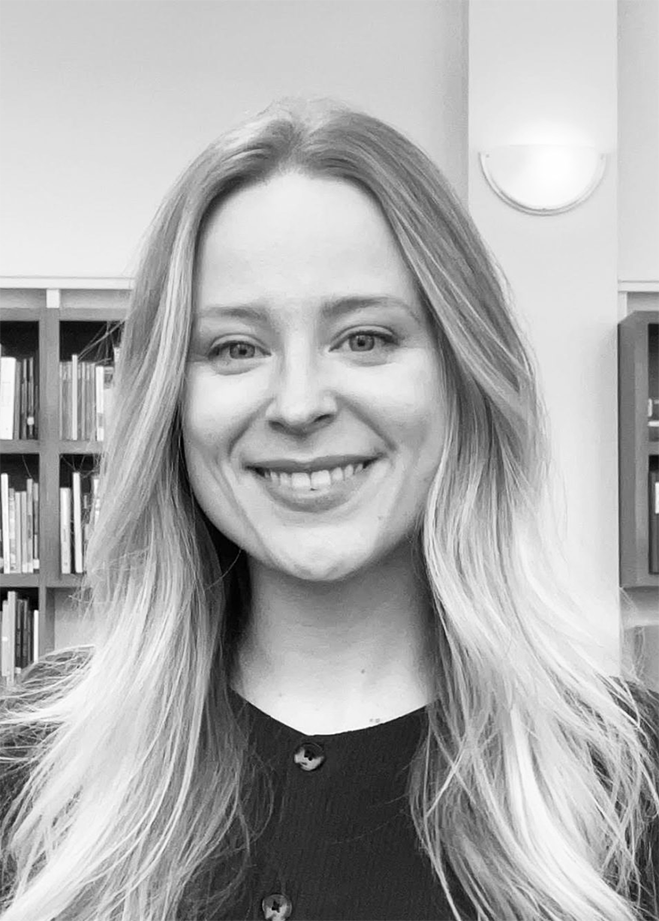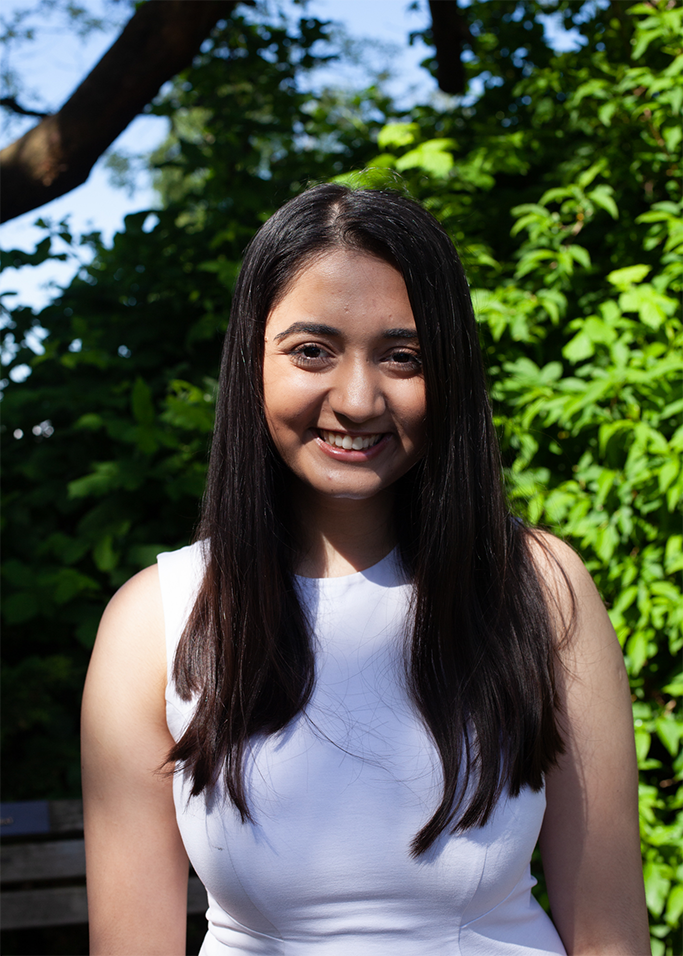Annika Steiro

Why did you choose your program at UBC and what did you enjoy most about it?
I was hooked by an introductory Art History course I took in first year! I loved the interdisciplinary nature of the content and how it influenced my outlook on the world. I entertained other options, but something felt right about the Art History program. I chose the Commerce minor because I wanted the exposure to business concepts and I liked how the course material always felt applicable to my work experiences.
What were some of your most meaningful experiences at UBC?
The friendships that came out of my time at UBC have been some of the more formative, supportive, and fun relationships of my life and I will forever cherish them! In organized environments, some standout experiences involved Art History Students’ Association (AHSA) events. On one occasion, UBC alumna Kristen Underwood (who worked at Christie’s at the time) gave a guest presentation through AHSA about working in the New York City art world. I was really inspired by the talk and I remember taking lots of notes! On a later occasion, I presented a lecture through AHSA (Salon Series) about queer representation in the twentieth century. Presenting a passion project to my peers during my final semester felt like a gratifying culmination of my growth at UBC—as an Art Historian and as a person!
What choices did you make at UBC that contributed to your career success / journey?
The Arts Co-op program was useful for accessing career resources, learning about opportunities, and getting work experience in an office setting. To shorten my degree, I only completed one work term through Arts Co-op.
I consider my Go Global exchange at the University of Sydney, Australia to be the best time of my life—plus it helped bolster my resume! I have been asked about my exchange during interviews on multiple occasions. Employers seem interested in the international exposure, adaptability, and independence demonstrated by a successful study abroad experience. If you have the privileged option of going on exchange, I cannot recommend it enough.
My two years on the executive team of AHSA were highly beneficial for networking, trying out different roles in a team setting, and learning about opportunities in the art world. My time with AHSA also helped strengthen my resume and gave me more to discuss during interviews for internships.
Throughout my degree, I sought out information sessions as well as asked for advice from advisors, professors, peers, or anyone that interested me and was willing to talk. This made a world of difference for learning about opportunities, sparking inspiration, and making decisions that worked for me.
What was your first job after graduation and what other jobs did you have before your current position?
I did not have a planned career path. In fact, this is something I struggled with a lot! In high school and college, I made job, volunteer, and extracurricular decisions based on where my interests and friends were at the time.
A major challenge I faced in launching my career was finding resources on jobs related to what I was already working towards in my studies. I would sift through alumni profiles (the irony!), co-op resources, and would simply ask around. For most of my degree, I had little to no luck finding materials that felt relevant to me. Joining AHSA was actually the most helpful in clearing this obstacle.
Getting my first internship came with a lot of rejection that often felt discouraging and hopeless at times. I combed through many job sites as well as an online catalogue of New York’s art galleries, applying to everything I felt like I might be qualified for. I only heard back from two, and the second took me on.
Living on internship stipends/wages is very difficult, especially in New York City! I moved to New York with savings and still felt a strong sense of physical and financial stress for 9 months as an intern—and even with a salary, things are tight.
What do you like about your current job and what do you find challenging? How does it relate to your degree?
As is the case with many administrative positions, multitasking and prioritizing tasks during busy periods can be a challenge. My degree helped prepare me for my current position as I learned to manage stress while working on competing projects. My business courses aid in contextualizing the work I do, while my Art History courses trained me in critical thinking, having an eye for detail, and an appreciation for art—all of which increase efficiency in my role.
I like that my department is team-oriented; there is an enjoyable sense of camaraderie on a daily basis. Since my department is internal, my responsibilities largely involve fulfilling requests for other departments and it feels good to assist colleagues. My role involves verifying documentation, cataloguing and other critical sale information to ensure a sale is accounted for, and so there is a satisfying feeling of ownership in sale facilitation. My role also has great exposure to other areas of work and opens doors for career trajectories across disciplines and on an international scale. Plus, being surrounded by globally revered art and culturally significant objects on a rolling basis, as well as talented, like-minded people to enjoy the journey with, is incredible!!!
From your experience, what has been the value of having an Arts degree?
I think an Arts degree is what you make of it. The course flexibility is helpful for exploring different subjects and learning about yourself. My Arts degree expanded my way of thinking, enhanced my professional skills, and introduced me to lifelong friends. There are plenty of jobs that can come out of an Arts degree. If you seize opportunities, a direction will present itself.
What advice would you give to students and alumni interested in breaking into your industry?
If you can, have a job during your degree—all work experience is useful! On top of that, get involved in any art related project or organization you can. Join the executive team of AHSA or VASA, and go to their career events, volunteer at art galleries and museums, apply for internships, and look into part-time opportunities in art environments.
Pay attention to what you can absorb about life from your courses. In my experience, I have not had to report my grades to employers. What you learn about art, opportunities, the industry, and life from professors, students, and advisors will be what forges your path the most. Reach out to anyone doing something you might be interested in. Seek feedback on your application materials from multiple people you trust—ideally from people already working in your desired field and who are similar in age. And try to develop a good compass for receiving feedback, not all advice will apply to you.
Apply to anything that interests you and be relentless about it. Apply for opportunities that align with skills you have demonstrated in an organized environment. Keep a job hunt journal to organize interview preparation. Save job postings you apply for to your computer in case the employer takes down the post before they contact you for an interview (you only make this mistake once!). Be open to opportunities that aren’t your first choice, anything art related has the potential to launch you towards your first choice.
There is no one right path to a job or company. Internships helped me get my job but comparable experience in a different field, a master’s degree, or meeting the right network connection could easily substitute internships. At each new internship, job, or experience, consider how you may want to improve your professional self—be it your application materials, the skills you want to say you developed, the colleagues and career paths you want to know more about—and insert yourself into situations accordingly!
What advice would you give to your first-year self?
Take care of your mental health and keep going! University gets easier as time passes. Be observant and listen more than you speak. Try to make a positive contribution in group situations, being on time goes a long way. Be outspoken and tender—the confidence that comes from forming connections with people is the hack. Have an open mind. If you’re on the fence about trying something, try it!
“Leap and the net will appear” ― John Burroughs
Annika Steiro



Why did you choose your program at UBC and what did you enjoy most about it?
I was hooked by an introductory Art History course I took in first year! I loved the interdisciplinary nature of the content and how it influenced my outlook on the world. I entertained other options, but something felt right about the Art History program. I chose the Commerce minor because I wanted the exposure to business concepts and I liked how the course material always felt applicable to my work experiences.
What were some of your most meaningful experiences at UBC?
The friendships that came out of my time at UBC have been some of the more formative, supportive, and fun relationships of my life and I will forever cherish them! In organized environments, some standout experiences involved Art History Students’ Association (AHSA) events. On one occasion, UBC alumna Kristen Underwood (who worked at Christie’s at the time) gave a guest presentation through AHSA about working in the New York City art world. I was really inspired by the talk and I remember taking lots of notes! On a later occasion, I presented a lecture through AHSA (Salon Series) about queer representation in the twentieth century. Presenting a passion project to my peers during my final semester felt like a gratifying culmination of my growth at UBC—as an Art Historian and as a person!
What choices did you make at UBC that contributed to your career success / journey?
The Arts Co-op program was useful for accessing career resources, learning about opportunities, and getting work experience in an office setting. To shorten my degree, I only completed one work term through Arts Co-op.
I consider my Go Global exchange at the University of Sydney, Australia to be the best time of my life—plus it helped bolster my resume! I have been asked about my exchange during interviews on multiple occasions. Employers seem interested in the international exposure, adaptability, and independence demonstrated by a successful study abroad experience. If you have the privileged option of going on exchange, I cannot recommend it enough.
My two years on the executive team of AHSA were highly beneficial for networking, trying out different roles in a team setting, and learning about opportunities in the art world. My time with AHSA also helped strengthen my resume and gave me more to discuss during interviews for internships.
Throughout my degree, I sought out information sessions as well as asked for advice from advisors, professors, peers, or anyone that interested me and was willing to talk. This made a world of difference for learning about opportunities, sparking inspiration, and making decisions that worked for me.
What was your first job after graduation and what other jobs did you have before your current position?
I did not have a planned career path. In fact, this is something I struggled with a lot! In high school and college, I made job, volunteer, and extracurricular decisions based on where my interests and friends were at the time.
A major challenge I faced in launching my career was finding resources on jobs related to what I was already working towards in my studies. I would sift through alumni profiles (the irony!), co-op resources, and would simply ask around. For most of my degree, I had little to no luck finding materials that felt relevant to me. Joining AHSA was actually the most helpful in clearing this obstacle.
Getting my first internship came with a lot of rejection that often felt discouraging and hopeless at times. I combed through many job sites as well as an online catalogue of New York’s art galleries, applying to everything I felt like I might be qualified for. I only heard back from two, and the second took me on.
Living on internship stipends/wages is very difficult, especially in New York City! I moved to New York with savings and still felt a strong sense of physical and financial stress for 9 months as an intern—and even with a salary, things are tight.
What do you like about your current job and what do you find challenging? How does it relate to your degree?
As is the case with many administrative positions, multitasking and prioritizing tasks during busy periods can be a challenge. My degree helped prepare me for my current position as I learned to manage stress while working on competing projects. My business courses aid in contextualizing the work I do, while my Art History courses trained me in critical thinking, having an eye for detail, and an appreciation for art—all of which increase efficiency in my role.
I like that my department is team-oriented; there is an enjoyable sense of camaraderie on a daily basis. Since my department is internal, my responsibilities largely involve fulfilling requests for other departments and it feels good to assist colleagues. My role involves verifying documentation, cataloguing and other critical sale information to ensure a sale is accounted for, and so there is a satisfying feeling of ownership in sale facilitation. My role also has great exposure to other areas of work and opens doors for career trajectories across disciplines and on an international scale. Plus, being surrounded by globally revered art and culturally significant objects on a rolling basis, as well as talented, like-minded people to enjoy the journey with, is incredible!!!
From your experience, what has been the value of having an Arts degree?
I think an Arts degree is what you make of it. The course flexibility is helpful for exploring different subjects and learning about yourself. My Arts degree expanded my way of thinking, enhanced my professional skills, and introduced me to lifelong friends. There are plenty of jobs that can come out of an Arts degree. If you seize opportunities, a direction will present itself.
What advice would you give to students and alumni interested in breaking into your industry?
If you can, have a job during your degree—all work experience is useful! On top of that, get involved in any art related project or organization you can. Join the executive team of AHSA or VASA, and go to their career events, volunteer at art galleries and museums, apply for internships, and look into part-time opportunities in art environments.
Pay attention to what you can absorb about life from your courses. In my experience, I have not had to report my grades to employers. What you learn about art, opportunities, the industry, and life from professors, students, and advisors will be what forges your path the most. Reach out to anyone doing something you might be interested in. Seek feedback on your application materials from multiple people you trust—ideally from people already working in your desired field and who are similar in age. And try to develop a good compass for receiving feedback, not all advice will apply to you.
Apply to anything that interests you and be relentless about it. Apply for opportunities that align with skills you have demonstrated in an organized environment. Keep a job hunt journal to organize interview preparation. Save job postings you apply for to your computer in case the employer takes down the post before they contact you for an interview (you only make this mistake once!). Be open to opportunities that aren’t your first choice, anything art related has the potential to launch you towards your first choice.
There is no one right path to a job or company. Internships helped me get my job but comparable experience in a different field, a master’s degree, or meeting the right network connection could easily substitute internships. At each new internship, job, or experience, consider how you may want to improve your professional self—be it your application materials, the skills you want to say you developed, the colleagues and career paths you want to know more about—and insert yourself into situations accordingly!
What advice would you give to your first-year self?
Take care of your mental health and keep going! University gets easier as time passes. Be observant and listen more than you speak. Try to make a positive contribution in group situations, being on time goes a long way. Be outspoken and tender—the confidence that comes from forming connections with people is the hack. Have an open mind. If you’re on the fence about trying something, try it!
“Leap and the net will appear” ― John Burroughs



